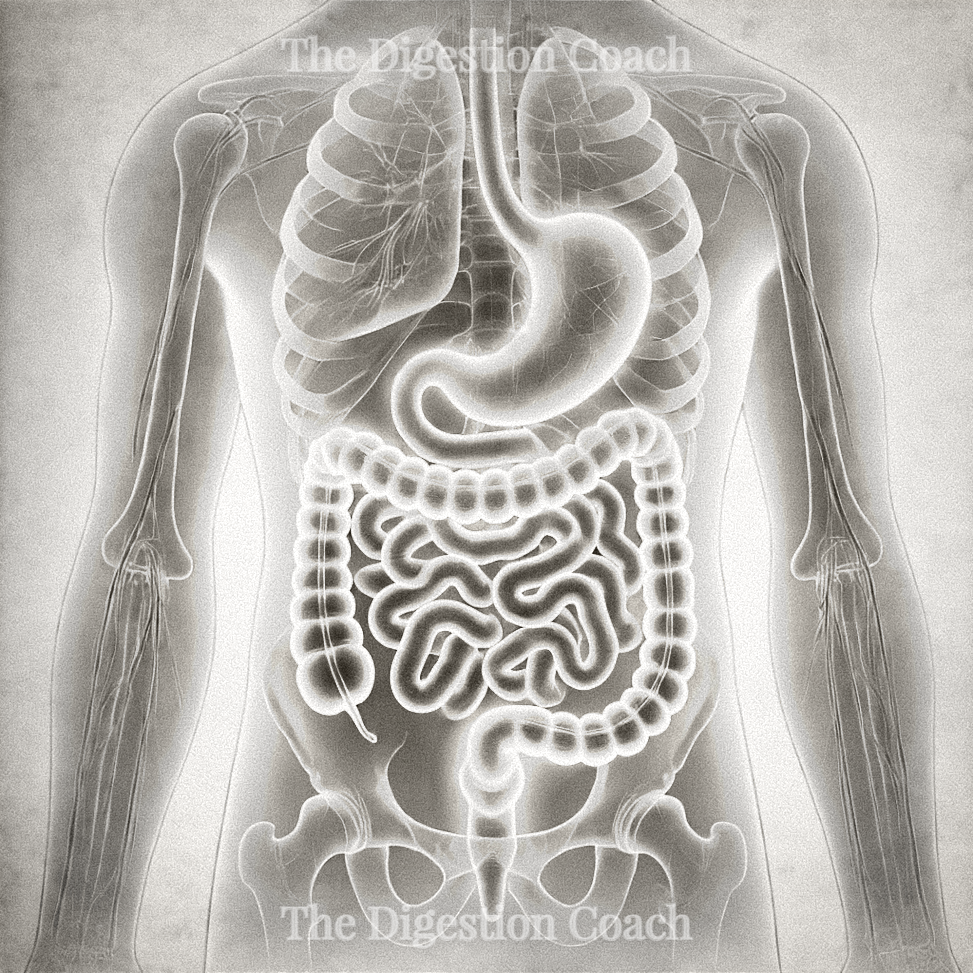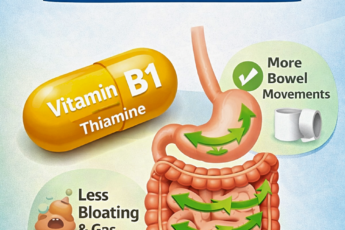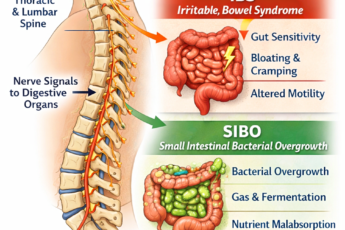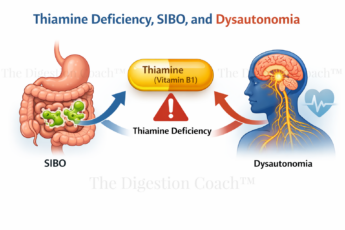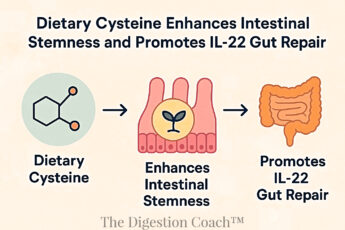Table of Contents
- What Is Gut Transit Time?
- Gut Motility and the Role of the Gut Microbiome
- Health Impacts of Slow Gut Transit Time
- Health Impacts of Fast Gut Transit Time
- How Stress and Diet Affect Gut Transit Time
- Maintaining Healthy Gut Transit Time
- Final Thoughts
We often focus on the foods we eat, questioning whether they’re nutritious and healthy. But how often do we ask how long does it take for our food to travel through our digestive system? One of my tasks as a digestion coach is to assist my patients in understanding that gut transit time is crucial, as it plays a significant role in our overall health and well-being.
What Is Gut Transit Time?
Gut transit time refers to how long it takes for food to travel through the entire digestive tract, from mouth to anus. Recent studies show that transit time can range from 12 to 73 hours, with the average being around 23 to 24 hours.
Several factors can influence gut transit time, including genetics, diet, stress, and the composition of your gut microbiome. The time food spends in your digestive system affects nutrient absorption, hydration, and even the balance of gut bacteria.
Gut Motility and the Role of the Gut Microbiome
Once you chew and swallow a meal, the food travels along the gastrointestinal (GI) tract. It passes through specialized organs: the stomach breaks it down, the small intestine absorbs nutrients, and the large intestine absorbs water and salts.
This movement of food is called gut motility, and it’s partly regulated by the trillions of bacteria in the gut microbiome. These beneficial bacteria help digest food, develop the immune system, and produce short-chain fatty acids (SCFAs) that support gut motility and reduce inflammation.
When we eat, we’re not just nourishing ourselves—we’re also feeding these helpful microbes. In return, they produce metabolites that stimulate intestinal nerves and help move food through the digestive tract. Without sufficient SCFAs, gut motility slows, leading to constipation and other health issues.
Health Impacts of Slow Gut Transit Time
Slow gut transit time means food moves too slowly through your digestive tract, which can have several negative consequences:
- Constipation and Discomfort: Slow transit often leads to chronic constipation, bloating, and abdominal pain. Over time, this can cause complications like hemorrhoids and anal fissures.
- Small Intestinal Bacterial Overgrowth (SIBO): Food lingering in the small intestine can promote bacterial overgrowth, causing symptoms like nausea, bloating, and malnutrition.
- Toxic Metabolites and Inflammation: When fiber takes too long to reach the large intestine, gut bacteria ferment proteins instead, producing harmful byproducts that can increase the risk of colorectal cancer.
- Diverticular Disease: Slow transit increases the risk of developing diverticula (small pouches in the colon), which can become inflamed or infected.
Health Impacts of Fast Gut Transit Time
Fast gut transit time, on the other hand, prevents proper absorption of nutrients and water, leading to different but equally serious health problems:
- Nutrient Deficiencies: Essential nutrients like iron, calcium, and vitamins A, D, E, and K may not be absorbed adequately, increasing the risk of anemia, weakened bones, and immune dysfunction.
- Dehydration: Fast transit results in loose, watery stools, as the large intestine doesn’t have time to reabsorb water. This can cause dehydration and electrolyte imbalances.
- Weight Loss and Malnutrition: Chronic fast transit, often associated with conditions like inflammatory bowel disease (IBD) and irritable bowel syndrome (IBS), can lead to unintentional weight loss and malnutrition.
- Exacerbation of Existing Conditions: Fast transit can worsen disorders like Crohn’s disease and ulcerative colitis, increasing inflammation and impairing healing.
How Stress and Diet Affect Gut Transit Time
Stress is a powerful factor that disrupts gut motility. Chronic stress affects the gut-brain axis, a communication network between the central nervous system and the GI tract. Stress hormones like cortisol slow down motility, leading to delayed transit time, constipation, and discomfort.
Diet also plays a vital role in maintaining healthy gut transit time. Beneficial bacteria thrive on dietary fiber and other prebiotic compounds, which help them produce SCFAs. Diets lacking fiber and substrates that feed these bacteria reduce SCFA production, slowing gut motility and promoting constipation.
Maintaining Healthy Gut Transit Time
The key to optimizing gut transit time is managing stress and eating a fiber-rich diet that supports your gut microbiome. Here are some digestive coaching tips:
- Increase Fiber Intake: Focus on fruits, vegetables, whole grains, legumes, and nuts. Aim for at least 25-30 grams of fiber daily.
- Consume Prebiotic Foods: Garlic, onions, bananas, and asparagus help feed beneficial gut bacteria.
- Include Probiotic Foods: Yogurt, kefir, and fermented vegetables can replenish healthy gut bacteria.
- Stay Hydrated: Drinking enough water supports smooth digestion and helps prevent constipation.
- Manage Stress: Try yoga, meditation, deep breathing exercises, or regular physical activity to reduce stress and support the gut-brain connection.
Final Thoughts
Gut transit time is a critical but often overlooked aspect of digestive health. Both slow and fast transit times can significantly affect well-being, from nutrient deficiencies to chronic inflammation. Read: Advancing human gut microbiota research by considering gut transit time.
By managing stress and adopting a diet rich in fiber and prebiotics, you can support a balanced gut microbiome and maintain optimal gut motility. Pay attention to what your gut is telling you—as a GI health expert, it could be the key to better health.
COMPLEMENTARY 15-MINUTE CALL
Take your first step toward a renewed sense of well-being. Call today to arrange a complimentary 15-minute consultation.
Let’s discern whether my approach aligns with your needs.
I look forward to connecting with you at 714-639-4360.
